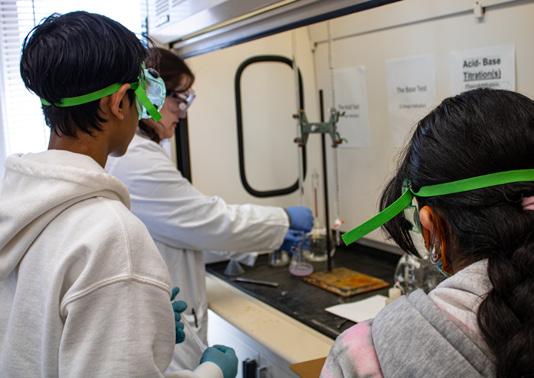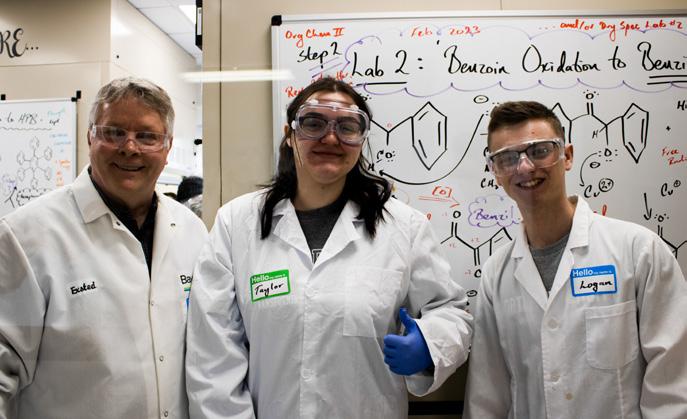
2 minute read
Shorter Hosts Science Olympiad Competition
The Science Olympiad Competition, founded in 1984, has challenged bright and creative students to reach their maximum potential by pushing them to think through hard situations and form creative and effective solutions. The central goal of the program is for students to learn science while actively competing against their peer groups. Each year, approximately 6000 teams from elementary to high school age compete at 425 different tournament locations nationwide. Shorter began hosting the competition in 2021 and recently hosted a 2023 event.
Associate Professor of Chemistry Dr. Daniel Clayton originally pitched the idea of bringing the competition to Shorter and hosting a tournament location in 2020. Liking the idea of this, Shorter University started hosting the Science Olympiad Competition virtually in 2021. The entire competition across the country was virtual that year looking very different than previous years. The competition was held online by student video submissions of build events and online proctored tests for the others. The Science Olympiad Competition was held in person for the first time on campus in 2022. Since the first year of holding it on campus went well, Shorter was asked to host the regional tournament in 2023.
Advertisement
On February 4, 2023, 100 to 150 students came to the Shorter University campus to compete in the Science Olympiad. This competition is broken up into several parts for a total 23 events held at Shorter this year. The first part of the competition was a traditional test of knowledge where students were tested on a variety of science-based concepts and topics. The next part of the competition was the build event where students had to solve a problem or create something to complete a task with a certain set of items. This year, students were instructed to build a rubber-powered aircraft and competed for how long their aircraft flew. Students also participated in building a musical instrument. They were tasked with playing a certain song in the correct pitch with their hand-crafted instrument. One of the most popular events was the bridge competition. Competitors were given popsicle sticks to build a bridge that could hold the most amount of weight possible. All of these events were all proctored and judged by Shorter science faculty and student volunteers.
This event could not have happened without the help of Shorter professors and students who gave their time because they truly cared about the goal of others learning and growing in science. When asked about the impact that having this competition had on participating students, Dean of the College of Natural Sciences and Mathematics and Associate Professor of Biology Dr. Clint Helms said, “The love the professors and college students showed toward the students competing made a great first impact of Shorter.”
Sophomore biochemistry major Keaton Brown agreed. “The Science Olympiad provided an opportunity for Shorter students to serve and engage with middle schoolers who are pursuing future medical professions all while showing God’s love,” he said.
With plans to host a 2024 Science Olympiad Competition, Shorter science faculty and students are eager to continue hosting the event and mentoring young scientists for years to come.
By: Clark Brannon
Keaton Brown
Biochemistry Major









